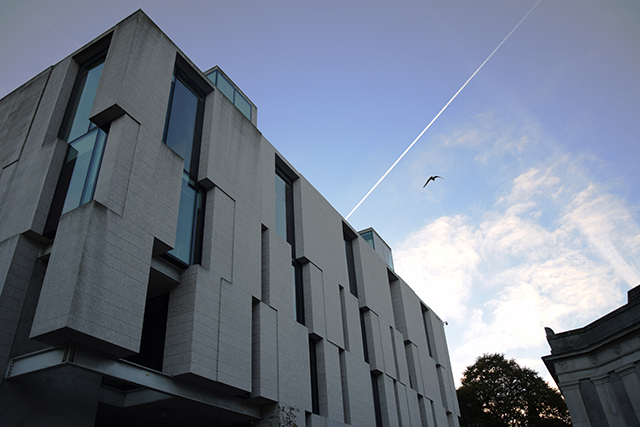A new report into the use of technology for assessment in higher education was launched in Trinity this evening. The report was launched by the Minister of State for Higher Education, Mary Mitchell O’Connor, in the Long Room Hub. The report highlighted several potential directions for improvement in technology efficiency, as well as ways to use technology to crack down on plagiarism.
Professor David Nicol also addressed the event, an expert in the field of third level academic assessment at the University of Glasgow. The event also heard from Trinity academics, Assistant Professor in Education, Ann Devitt, and Assistant Professor in Business, Mairead Brady, who produced the report.
Launching the report in Trinity this evening, Minister Mitchell O’Connor was hopeful that we “get it right for our education system”, as we “embrace digital technology”. She called for a greater understanding of the “realities associated with digital learning and noted that the report is “a significant report in mapping out best practice in digital teaching and learning and in supporting the overall digital experience of our students.”
Minister Mitchell O’Connor noted that the “transformative potential of technology cannot be underestimated”, and called it a “key driver of change facilitating interactive change”. She was optimistic that it could allow “cost effective” ways of teaching.
Dr Terry Maguire, Director of the National Forum for Teaching and Learning in Higher Education also welcomed the report. He noted that the report aims to “ensure that developments and decision-making related to teaching and learning in Irish higher education are rooted in a solid base of evidence”.
The report outlined an examination of an intelligent tutorial system, game based learning, and new opportunities for learning and assessment. The report also found that technology was mainly adopted to foster collaborative learning and to provide students with “plenty of opportunities for practice”.
Devitt was keen to highlight ways in which technology can facilitate “self-directed” learning from students, and noted that the report can be used to allow students to work more independently from staff. She also noted that to become sustainable we must “focus on designs that optimise staff and student effort to focus on what is important, that is, students being fully supported to drive their own learning forward”.
Dr Brady, who is an Assistant Professor in Business at Trinity, said that the report was “timely” in the current “race to adopt technology in higher education”. She also noted that the report “showcases the real practical implementation issues that many academic innovators experience while also providing some guidance on how we might progress”.
This event follows a day after the launch of Budget 2019, which saw criticism from the Irish Universities Association. They said that this was a budget that “has done very little to address the growing crisis in third level education funding”.






